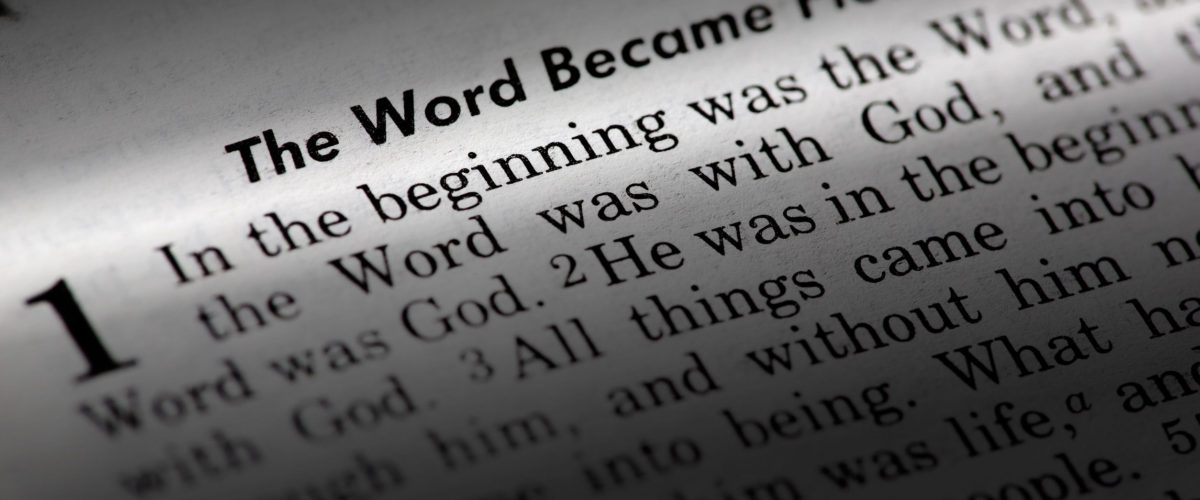"Remember that all my judgments are not given unto men; and as the words have gone forth out of my mouth even so shall they be fulfilled, that the first shall be last, and that the last shall be first in all things whatsoever I have created by the word of my power, which is the power of my Spirit. For by the power of my Spirit created I them; yea, all things both spiritual and temporal—First spiritual, secondly temporal, which is the beginning of my work; and again, first temporal, and secondly spiritual, which is the last of my work—Speaking unto you that you may naturally understand; but unto myself my works have no end, neither beginning; but it is given unto you that ye may understand, because ye have asked it of me and are agreed."
A small group of elders and members, preparing for the first General Conference (we're coming up on another one to which you're all invited) had questions about specifics of their Book of Mormon study and how they connected with Biblical doctrine. They brought their questions to Joseph Smith, uniting to hear if the Lord would provide interpretive guidance or reveal new doctrine as He had on several occasions recently. The questions were about two topics specifically: the whereabouts of the New Jerusalem, which passages from 3 Nephi and Ether indicated would be somewhere in the Americas; and on Adam's fall, which they had various opinions about.
As was the case when Smith himself went to a grove as a boy to ask which church to join, the effusive response to these questions went much further than their questions naturally implied. In the course of helping the faithful foresee where, why, and how to gather the elect--including the urgency of the task--and helping them understand the doctrinal context of the chronological steps of the Plan of Salvation, which was not yet explicitly established as such, the Lord used evocative language that deserves a close look:
1. John the Beloved opens his Gospel with quasi-mystical poetic language to describe Christ in ways no other book of scripture does. The association of God with the Logos--a polysemic Greek term of impossible complexity often translated as "word", but just as easily capturing the concepts of "logic", "reason", "principle", or "order"--has inspired lengthy treatises on the nature of God as "first cause" and "prime mover" of creation, as underlying principle of all reality, and as connection between word and thing, signifier and signified. Monotheists who believe in an omniscient, omnipotent, and omnipresent Father full of love and mercy can agree that there may be something quite literal for a Being so powerfully beyond our understanding to speak and for creation to simply align in obedience like magic. LDS doctrine, emboldened by the demonstration to Joseph Smith that the trinitarian notion of a god of "no body parts or passions" was a misinterpretation, retains all the awe and reverence for that Father, while avoiding the irrational superstition that makes the Being who communicates His nature to us through the familial term "Heavenly Father" into something unrelatable and distant. We understand that Jehovah was a spirit before His embodiment as the child of Mary, and that He is a spirit still, although eternally ensconced in glorified and immortal flesh as He has promised we all will be after the resurrection. His bodily form and the mastery of His spirit over it is the essence of our earthly model, and His power over death is also the sign of His power over sin, or spiritual death. Because we know the Godhead has three separate Beings, rather than believing in a three-in-one Trinity, we can take it more literally when Jehovah reveals that even before His spirit had flesh, He had power--that His organizing, comprehending Logos could create by mere commandment. We can connect the concept of spirit as intelligence--as active matter that can act on passive matter--to the concept of faith. In every act we take, we must first think it in our minds, decide to carry it out, and then move. Christ's power to act is something we too can imagine--our will, though subject to natural forces His has already mastered, follows the same model and principles every step of faith it takes toward becoming like Him: God made plans, and then fleshed them out. May our faith lead our will to be ever more subject to Him, finding in Him power over flesh and all other temporal matters.
If the above seems abstract and esoteric, please know that it's me trying to wrestle with concepts I can barely and only vaguely grasp, and give my best attempt at wrangling them into language. I'm not fully satisfied that I've laid out even what I intend to write here. But if it's not obvious by my content, it should be at least by my demonstration of ineffectiveness at communicating that the concept of the Word being the power of God's spirit is pretty mind-blowing, and deserves more pondering.
2. We can rightly call God our Father. He chose the term as His name and uses it to teach about His nature, as do all of the names and titles He has inspired prophets to teach us that He goes by. Another is "the Alpha and the Omega." Literally the first and last letters of the Greek alphabet, the metaphor seems clear: He is the beginning and ending. He was present at Creation, and will be present at Judgment Day. But He's also an "eternal" Being. As a being locked in a finite chronological system with an irrevocable arrow of time, it boggles my mind to contemplate how a Being who can see the end before the beginning, and who knows each cause before its effect has triggered it, must have to dumb His message way down. If past, present, and future are all present to His eyes and mind, there's no reason to think in the terms we find inevitable--past, start, seconds, minutes, hours, days, years, end, sequence, increments, becoming, last, first. All of it is only for the benefit of us, mortal beings temporarily trapped in temporality. How merciful He is, then, to condescend to help us grasp His project with phrases like the last shall be first and the first shall be last. Smith's intermediary effect allows us to understand how the Day of Judgment will mirror the Creation, reversing a spirit-first, temporal-last process into a resurrection of bodies before an assignment of eternal glories to those bodies according to eternally fixed criteria. As futile as it seems, trying to wrap one's brain around eternal things leads to gratitude both for the magnitude of creation (and the work of its salvation) and for the love in the Creator who speaks to us in terms we can understand about His nature.


No comments:
Post a Comment